Regular health checkup
Understanding Conjunctivitis Symptoms and Signs : A Comprehensive Guide
Conjunctivitis, also referred to as pink eye or eye flu, is an eye condition that can make people feel uncomfortable, irritated, and have red eyes. The thin membrane that covers the white area of the eye and the inner surface of the eyelids, the conjunctiva, becomes inflamed, which is how it is identified. To assist you in recognising and comprehending this widespread eye condition, we will break down the conjunctivitis symptoms and indicators in this post. Redness of the Eye The redness of the eyes is one of the main and most obvious signs of conjunctivitis. Because of the pink or red colour of the eye caused by the inflamed blood vessels in the conjunctiva, the condition is frequently referred to as "pink eye." Depending on the underlying cause of conjunctivitis, the degree of redness can range from mild to severe. Itching and Irritation Conjunctivitis frequently causes itching and irritation in the affected eye or eyes. People may feel the urge to touch their eyes to ease the itching, which can range from mild to severe. However, in the event of infectious conjunctivitis, scratching the eyes can exacerbate the illness and possibly transmit the infection. Watery or Discharge from the Eye Conjunctivitis can cause the eyes to tear excessively or discharge. While bacterial conjunctivitis may provide a thicker, yellow or greenish discharge, viral conjunctivitis typically results in a clear and watery discharge. Due to the body's immunological reaction to allergens, allergic conjunctivitis can also result in watery discharge. Swollen Eyelids Conjunctivitis occasionally results in swollen eyelids, making it difficult to fully open or close the eyes. The inflammation that affects the tissues of the eyelids usually causes swelling. Sensitivity to Light (Photophobia) Conjunctivitis can cause photophobia, a condition in which the eyes become sensitive to light. People who have conjunctivitis may experience discomfort and suffering when exposed to bright lights or sunshine. Crust Formation on the Eyelids Particularly after waking up in the morning, bacterial conjunctivitis can cause the development of crusts or "eye boogers" on the eyelids. These crusts develop as a result of dry discharge gathering on the eyelids while you sleep. Foreign Body Sensation Some people with conjunctivitis could feel as though they have grit or a foreign body in their eyes. This sensation may be uncomfortable and increase the desire to massage one's eyes. For early detection and suitable care, it is essential to recognise the symptoms and signs of conjunctivitis. A qualified eye care practitioner must be consulted if you suffer redness, irritation, excessive tearing, or discharge from your eyes in order to make an accurate diagnosis and receive the appropriate treatments. While the majority of conjunctivitis instances are not dangerous and can be treated with self-care or medical procedures, prompt treatment can help reduce discomfort and stop the conjunctivitis from spreading to other people. Keep in mind that having healthy eyes is crucial for sustaining vision and general wellbeing.
Why and When You Should Get Tested for Vitamin D?
Vitamin D: The Sunshine Vitamin Vitamin D helps our body absorb calcium and phosphorus from the diet. That is why it is essential for the development and functioning of bones and teeth. It is available in two forms: vitamin D2 and vitamin D3. Vitamin D2 is mainly found in plant-based food and whereas vitamin D3 is made by your own body when it is exposed to sunlight. It is also found in animal-based foods. Both forms of vitamin D are changed to an active form which is 25 hydroxyvitamin D, also known as 25(OH)D. What is The Importance of Vitamin D Test in India? According to a study published in the Indian Journal of Pharmaceutical Sciences, approximately 70-90% of the healthy Indian population is vitamin D deficient. Low level of vitamin D occurs commonly in India across the different age, sex, gender, urban or rural settings. How Do You Know if Your Vitamin D Levels are Sufficient? If you have low levels of vitamin D, your body might give some signs such as pain in joints and limbs, fatigue, etc. However, it is not uncommon to have vitamin D deficiency and have no signs altogether.A Vitamin D test is the best way to know if you have sufficient levels of vitamin D in your body. This test is done to measure the level of 25 hydroxyvitamin D in your blood to check whether it is low or higher than normal. When Should You Get a Vitamin D Test? You need to undergo vitamin D test if you fall into any one of the following categories: 1. You suffer from bone problems: Studies state that vitamin D is essential for the absorption of calcium, which plays an important role in the maintenance of bone health. Hence if you are suffering from pain in the bones or weak and fragile bones; you should get a vitamin test done. 2. You have a disease that reduces the body’s ability to use vitamin D: These are diseases of the liver, kidney, pancreas, thyroid, digestive system, and others. 3. You are a senior citizen: Elderly people need to get their vitamin D level tested. This is because due to age and staying indoors, their skin fails to make vitamin D when exposed to sunlight as efficiently when young. Aging causes a range of health problems. Want to make aging easier for you? Make sure to get your full body health tested regularly. 4. You are obese: In case of obesity, body fat binds to available vitamin D and prevents it from getting into the blood. Thus obesity might make you vitamin D deficient.Obesity can cause derangement of cholesterol levels. Get tested for high levels of bad cholesterol here. 5. Your exposure to sunlight is limited: Since your body makes vitamin D when exposed to sunlight, you may be at risk of deficiency if you are housebound or have an occupation with limited sun exposure (if working in corporates, hospitals, etc.) 6. You underwent weight-loss surgeries: Weight loss surgeries reduce the size of the stomach. This makes it difficult for the body to absorb a sufficient amount of vitamin D. 7. If you are taking certain medicines: Medicines such as anticholesterol, antifungal, antifungal, and antiviral drugs also affect vitamin D metabolism. 8. Breastfeed babies: Breastmilk is not rich in vitamin D. That is why breastfed babies are advised to take vitamin D supplements. If not, their vitamin D level should be tested to probe vitamin D deficiency. 9. You have dark skin: This is because a large amount of pigment melanin in the skin reduces the skin’s ability to make vitamin D when exposed to sunlight. 10. Your diet lacks a source of vitamin D: Vitamin D is mainly found in animal sources including fish and fish oils, egg yolks, milk, and liver. If you follow a strict vegan diet, you might end up having a low level of vitamin D. 11. You are suffering regularly from one of these: Frequent nausea, vomiting, poor appetite, constipation, weakness can be a sign of excess vitamin D in the body. What Happens in a Vitamin D Test? This test is performed using a blood sample. Following steps are taken: A fresh syringe with a fine needle is used to withdraw blood from a vein in your arm. A healthcare provider will first tie an elastic band around your arm. You may be asked to open and close your hand to make a fist. This makes the veins swell with blood and visible. The area from where the sample will be taken will then be cleaned with an antiseptic solution and a cotton ball. The needle is then inserted into the vein to collect your blood sample. You will feel a tiny prick like an ant bite during the procedure. Blood samples once collected will then be sent to the laboratory. What Do Vitamin D Test Results Mean? This test measures the level of the active form of vitamin D which is 25(OH)D: Lower levels of 25(OH)D can indicate various health problems like bone disorders, insufficient nutrition, or other medical problems. It can be due to less exposure to sunlight, deficiency of vitamin D in the diet, or decreased absorption from the intestine. Higher levels of 25(OH)D than the normal range indicates vitamin D excess which might occur due to overdose of vitamin D. Range: The normal range of vitamin D is measured in nanograms per milliliter (ng/mL) or nmol/L and can vary from lab to lab. Deficiency- <20 Insufficiency- 20-29 Sufficiency- 30-100 Toxicity- >100 How Frequently Do You Need to Take the Vitamin D Test? Normally doctors do not recommend a vitamin D test but if they do, ask about your risks. If you are at a higher risk, it is advisable to get the test. If it is low, you can take advice to boost your vitamin D level with supplements and sun exposure. Bottom line Maintain an adequate level of vitamin D with a proper diet and spend time in the sun. If you choose to take supplements, it is advisable to take it only under medical prescription.
The science behind vitamin B12: Why do you need it?
In today’s time, almost everyone is turning towards a plant-based diet. Although it is healthy, it has a few downfalls if you do not take supplements for certain nutrients missing in a plant-based diet. One of these important nutrients is vitamin B12. Falling short of vitamin B12 can have a serious impact on your health What is vitamin B12? Vitamin B12 is an essential vitamin for the human body. It is a micronutrient which means your body requires it in small amounts. It is naturally found in animal foods. Vitamin B12 is required for red blood cell formation, optimal functioning of brain and nerve cells, and maintenance of a healthy immune system. It is also known as cobalamin and is a water-soluble vitamin. This means it can dissolve in water and travel into the bloodstream. Any excess vitamin B12 is excreted in the urine. Your body can store vitamin B12 for several years in the liver, so a deficiency of this vitamin is usually rare. However, if you are a vegetarian, you might become deficient because plant foods do not contain vitamin B12. To prevent that, you need to take vitamin B12 from supplements. Where can you get vitamin B12 from? Vitamin B12 is naturally found in animal foods. Good dietary sources of vitamin B12 include: Poultry Red meat Eggs Dairy products like milk, cheese, yogurt Fish Fortified breakfast cereals Fortified nutritional yeast Enriched soy milk How much vitamin B12 do you need? According to the National Institute of Health, the Recommended Dietary Allowance for men and women aged 14 years and above is 2.4 micrograms (mcg) daily. For pregnant and lactating women, it is 2.6 mcg and 2.8 mcg daily, respectively. Want to get your vitamin B12 level checked? Check here What happens when you do not take an adequate amount of vitamin B12? This leads to various deficiencies such as: 1. Anemia When you do not take an adequate amount of vitamin B12, it leads to a type of anemia known as megaloblastic anemia. In this condition, the size of the red blood cells increases. As a result of this, the red blood cells are unable to move from bone marrow to the bloodstream. Consequently, you might face fatigue, weakness, pale skin, and shortness of breath. 2. Tingling sensation in hands and legs Vitamin B12 plays a vital role in maintaining the covering of nerve cells, called the myelin sheath. It is the fatty material that surrounds and protects your nerves. When you are vitamin B12 deficient, your nerve cells cannot function properly. This eventually might alter the way you move. It can affect your body balance and make you more likely to fall. 3. Brain fog Your memory can become hazy. You can find it difficult to concentrate. 4. Osteoporosis Osteoporosis is a bone disease in which the bones become weak and may break from a fall. Vitamin B12 plays an important role in maintaining good bone health. Low levels might lead to low bone mineral density. This makes the bones delicate and fragile over time, leading to osteoporosis. Some of the other symptoms of vitamin B12 deficiency are confusion, depressive symptoms, and vision loss. Some of the studies had stated that vitamin B12 deficiency could pose a risk of COVID-19 in older patients. However, these studies still remain to be peer-reviewed. Further validation research is required to claim the association of vitamin B12 deficiency and COVID-19. Who can be at a risk of vitamin B12 deficiency? People avoiding animal products People who follow a strict plant-based diet are at risk of becoming deficient in vitamin B12 since it is found naturally in animal products. Elderly people Gastritis is a condition that affects elderly people the most. In this condition, the body becomes unable to absorb vitamin B12 that is naturally present in food. People with certain digestive disorders Certain digestive disorders like inflammatory bowel disease, Celiac, and Crohn's disease reduces the body's potential to absorb vitamin B12. Thus causing deficiency of vitamin B12. People who had undergone gastrointestinal surgery Weight loss surgeries or surgery to remove part of the stomach often interferes in the proper absorption of vitamin B 12 from the diet. Pregnant and lactating women Vitamin B12 can pass from mother to baby via breast milk. Mothers who exclusively breastfeed their baby and follow a plant-based diet might make their baby deficient of vitamin B12. Without enough vitamin B12, the baby might have growth and developmental delays. People with chronic alcoholism In this condition, the body becomes unable to absorb vitamin B12 efficiently from the diet. How to overcome vitamin B12 deficiency? You can take animal-based food and if you are a vegetarian you can take vitamin B12 fortified cereals. You can also take vitamin B12 supplements with doctor’s advice. Are there any side-effects of vitamin B12? Vitamin B12 is a water-soluble vitamin. After the body utilises the required amount of vitamin B12, leftover amount will pass through urine. Generally, there are no side-effects seen with excess vitamin B12 intake from food. However, it is always advisable to consult your doctor before starting a high dose of vitamin B12 supplements. When do you need a vitamin B12 test? If you think you might be vitamin B12 deficient, it is advisable to consult your doctor and get a blood test done. Vitamin B12 is like a regular blood test and you can get it done from any trustworthy laboratory. The normal range is 211 - 911 pg/mL irrespective of sex and age. Bottom line Vitamin B12 is a water-soluble and essential vitamin. It is responsible for various health benefits like preventing anemia, supporting the nervous system, improving and maintaining healthy bones. You can get the required amount of vitamin B12 from your diet (animal food). However, if you follow a plant-based diet or have a condition that affects absorption, supplements are a simple way to increase your B12 intake. Take care, stay healthy!
7 Ayurvedic Home Remedies for Cough and Cold
Who does not love to enjoy a cup of piping hot coffee on a beautiful rainy day? Everyone does! But this season also brings a tale of woes: Cold & Cough. Although mild common cold is relatively harmless, it can still be taxing for you to do your daily chores. Apart from the change in season, there are other factors that can cause coughing and cold. Well, cough is a common reflex action and can also occur when a foreign particle enters inside your airways. Seasonal and environmental allergies are among one of the most common causes of cold and cough. Think you could be allergic to some substances? Take an allergy test and know at the comfort of your home. Natural Home Remedies for Cough & Cold - Manage with These Ayurvedic Remedies In addition to medicines and cough syrups, you can use some simple ayurvedic home remedies for cough and cold to help you feel better. According to Ayurveda, imbalance in any of the three doshas i.e., vata, pitta, kapha can cause an ailment. In this case, an excess of Pitta and Kapha in the body causes nasal congestion and cough. To tackle this, here are some natural home remedies for cough and cold: 1. Tulsi In Ayurveda, Tulsi is known as "Mother Medicine of Nature" and "The Queen of Herbs". Tulsi leaves help improve the individual’s ability to fight against common cold as well as cough. How it works Tulsi boosts the production of antibodies thereby preventing the onset of any infections. Tulsi has cough relieving properties. It helps soothe the airways by helping you cough out the sticky mucus. How to take Tulsi leaves Chew 4-5 tulsi leaves the first thing in the morning. You can continue taking Tulsi leaves to boost your immunity. Tulsi kadha Take a few tulsi leaves. Wash it well. Boil water in a pan, add the tulsi leaves. To it, add 1 teaspoon of grated ginger and 5-6 peppercorns. Boil the mixture for at least 10 minutes. Finally, add a pinch of black salt and squeeze ½ lemon to it. Let it stand for 1 minute. Strain and drink it warm. Tulsi Tea Add fresh tulsi leaves to 1½ cups of water. Boil on a medium flame for 10 minutes. Strain the water using a strainer. Add lemon juice and mix well. Drink warm to get relief from cough and cold. 2. Honey With loads of antimicrobial properties, honey is not only heavenly for your taste buds but also helps ease sore throat. It is an effective cough suppressant. How it works Honey provides relief from chest congestion by loosening thick mucus and helping you to cough it out. This helps reduce wet cough. How to take Take a teaspoonful of honey before going to bed at night to reduce the severity of cough. Continue till you do not get relief from cough. Honey in Ginger Juice Take 1 teaspoon honey. Add 1 teaspoon of ginger juice and 1 pinch of black pepper. Take once in the morning and once before going to bed at night to get relief from a sore throat and cough. Honey is a miracle of nature which not only aids in improving digestion but boosting your metabolism also. Keep a check on your overall health with a comprehensive full body check-up. 3. Mulethi Mulethi or Licorice, also known as “Sweet wood”, is an effective Ayurvedic herb for cough. Mulethi powder is useful in managing sore throat, cough and excessive production of mucus in the airway. How it works Mulethi has expectorant property. It thins and loosens the mucus inside the airways. This eases coughing and reduces congestion. How to take Mulethi water Take 1 teaspoon Mulethi powder and add to 1 glass of warm water. Drink this twice a day. Mulethi tea Take 1 small piece of Mulethi root and add it to boiling water. Add grated ginger and let it simmer for around 5 minutes. Add a tea bag and drink this tea twice a day. Mulethi kadha Take 1/4 teaspoon mulethi powder, a pinch of cinnamon powder, black pepper powder and few tulsi leaves. Add to 1 cup of boiling water. Simmer for 5 minutes. Transfer to a cup and add 1 teaspoon honey to it. Drink this kadha twice a day. 4. Pippali Pippali is an effective herb in managing cough and cold. Studies state that it gives relief from headache and congestion associated with common cold. How it works Pippali loosens mucus and helps to cough it out, thus allowing the patient to breathe freely. This is due to its expectorant property. How to take Pippali Churna Take a pinch of pippali churna. Swallow it with 1 teaspoon honey. Repeat 1-2 times a day and continue till cold and cough subsides. 5. Sonth Dry ginger popularly known as sonth or sukku or soonth is one of the main ingredients of herbal cough syrups. Sonth, when taken with honey, acts as a soothing remedy for cough and cold. How it works Sonth contains certain molecules that have anti-inflammatory properties. This helps reduce sore throat. How to take Sonth with honey Take 1/4 teaspoon sonth and add to 1 teaspoon honey. Mix well and take it twice a day for at least 3 days. Sonth Goli Take 2-3 tbsp of desi ghee in a pan. Keep the flame low. Add 2-3 teaspoon jaggery powder and let it melt. To this add 2-3 tbsp sonth powder. Mix well. Allow it to cool. Shape into bite-sized balls. You can take 1 goli twice a day. 6. Cinnamon This woody aromatic spice is loaded with many health benefits and one of them is relief from cold and cough. It not only gives relief from common cold but is also great for a sore throat. How it works Cinnamon is known to have antiviral property. This helps fight against the virus causing common cold. It also has anti-inflammatory properties that help give relief from a sore throat. How to take Cinnamon tea Make your regular cup of black tea. Add a pinch of cinnamon powder to it. Drink it 2-3 times a day. Cinnamon with honey Take 1 teaspoon honey and add 1/4 teaspoon cinnamon powder. Mix and take it twice a day for at least 3 days. 7. Giloy Giloy, also known as Amrita or Guduchi in Hindi, has heart-shaped leaves that resemble betel leaves. It helps manage cold and cough caused due to allergic reactions to pollution, smoke or pollen. It also helps to manage cold and tonsillitis. It is also the most effective herb to boost immunity. How it works Giloy has good anti-inflammatory property. This helps reduce frequent cough as well as a sore throat. How to take Giloy juice Take two teaspoons of Giloy juice with warm water on an empty stomach in the morning. Giloy tablet Alternatively you can also take 1 Giloy tablet with warm water in the morning. You can buy Giloy juice or tablet from any Ayurvedic store or buy online. Quick Tips to Keep Distance from Cold and Cough Wash your hands properly with soap and water for at least 20 seconds to prevent the spread of cold viruses. Avoid touching your face, eyes, nose. Sanitize your hands with alcohol-based hand gels after touching contaminated surfaces at work-place like door-knobs, mouse, chair handles, etc. Keep a distance of 6 feet from people who are suffering from cold and cough. Wear a mask whenever you step outside the house or whenever you come in contact with people you don’t live with. Increase your water intake and have hot tea and liquids. Do steam inhalation by adding 1-2 drops of eucalyptus oil in a bowl of hot water. Repeat 2-3 times a day to get relief from a stuffy nose. Strengthen your immune system by taking a balanced diet rich in vitamin C food. Lastly, indulge in some form of exercise or yoga to keep yourself active. So which ayurvedic home remedy have you tried to get relief from cough and cold?
In India, deaths due to heart disease have doubled to 28% from 15% in 2 decades: Here is why?
Heart diseases rank among one of the top most causes of death globally according to WHO (World Health Organization). Deaths due to heart diseases have doubled in India, its 28% now as compared to 15% in 1990s, as per a report published in Lancet Journal. In the light of growing modern technology, not only the new and young “smartphone generation” but also everyone else is facing more devastating consequences due to their comfortable yet fast paced and stressful lifestyle. This is leading to spike in heart diseases and lifestyle disorders. And to further the situation is the fact that cardiovascular disorders are very unpredictable, they begin slowly but lead to sudden serious disturbances of heart and ill health. We cannot change the causative factors of cardiovascular diseases like family history of heart diseases, gender or age but that does not mean we should not do our best to bring about changes in our lifestyle that can help in lowering the risk of cardiovascular diseases. Proper lifestyle, diet, exercise with appropriate medical interventions can help delay the problem or even put a stop. Here are the pointers of the governance for a better Heart and actions to be taken: Stress One word, one cause that can be the root for different health disorders is stress. In times when technology and support was not abundant activities such as house cleaning, gardening, taking children and pets to play and walk, climbing stairs, doing household work manually were daily physical activities. These activities even though sedentary, were helping people to keep their body fit and also assist to reduce the occurrence of high blood pressure, high sugar levels, high cholesterol and thus, check the overall strain on the heart, to a certain level. Today’s fast moving lifestyle has literally reduced all these small yet essential de-stressing physical activities. Thus resulting in increase of oxidative stress and free radicals in the body that are detrimental for the heart. Coping with stress in unhealthy way like binge eating, eating at irregular intervals or anorexia nervosa causes further negative impact on heart health. The key is to find alternative ways of managing and reducing stress using various relaxation techniques like meditation, yoga, pranayama, 30 minutes of physical activity preferably cardio exercise done 5 days a week, aerobics or brisk walking and more. These activities offer great benefits like increasing the oxygen levels in the body, enhancing blood circulation to all parts of the body, toning of muscles and nerves and much more resulting in better inner health of the body and the heart. Sleep Getting quality sleep for appropriate amount of time is missing in this generation where most of the population is addicted to mobile phones and laptops, working in night shifts, late night binge watching, hectic work schedules. Sleep apnoea, breathing troubles are conditions which if persist for a considerable amount of time lead to disturbance in sleep-wake cycle that can further lead to increase in the risk of heart diseases. Sleep is one of the major function during which the body goes into repair, maintenance and rest mode. Making sleep a priority in life and sticking to a schedule is the solution. Most adults need 6 to 8 hours of uninterrupted sleep daily to feel fresh, stay health and to wake up energised. Diet A diet lacking in fruits and vegetables devoid the person of the micronutrients and trace elements essential for body. Consuming too much sugar, salt, high-fat food, processed foods are a threat to heart health. Fast foods and ready-made foods are rich in trans-fats, hydrogenated and saturated fats. Food products like red meat, palm oil, crackers, chips, cookies, deep fried food, baked foods and all food types categorized as ‘junk food’ are detrimental in long run especially when consumed in excess or regularly. These can lead to accumulation of fat or sugar in the body and can lead to heart trouble. The increased exposure of chemicals and pesticides to the cultivated crops is also a major culprit for toxin build up. Substance misuse – Alcohol, smoking, consumption of drugs When it comes to these habits, occasional and moderate usage of Alcohol is fine, but smoking, substance misuse and excessive alcoholism are immensely detrimental to the cardiovascular (heart) health of your body and are direct causes of heart disease. Chemicals in tobacco damage blood vessels, causing plaques (fat deposition inside blood vessels). It also narrows the arteries leading to atherosclerosis and myocardial infarction (cardiac cell death). These symptoms have increased over the years and so has the risk of coronary artery disease (CAD), even in non-smokers in last few years. Smokeless tobacco, low nicotine cigars, low tar cigar, second-hand smoke (passive smoking) can also be dangerous and increase the risk of heart disease even if it is social smoking only with friends. Especially Women are at a greater risk if smoking while consuming contraceptive pills. Getting regular health check-ups and medical consultation is advisable. As regular and early screening can help in detecting the diseases in time and hence can be better monitored and managed to reduce the risk to life. Wishing you a very Happy and Healthy Life. Take care. Check tests & Profiles for Heart here Contributed by Dr. Chaitra Avinash, an expert on lifestyle disorders, dietary intervention and hair-skin care.
Dear Women, this is why it is extremely important to take care of YOU and your health
A woman juggles multiple roles and relationships in her life - a daughter, a sister, a wife, a mother, homemaker, professional - these are the traditionally accepted roles of women all over the world. Over the years, women are more determined to pursue education and follow their interests in the field of their choice. This new dimension adds to a woman’s responsibilities and tasks. Women are now into demanding jobs like managerial positions, head of institutions, administration, media, science, academics, research etc., but she also expected to be a good homemaker. Women drain themselves in maintaining a balance. In 2018 GCI Health launched the HealthiHer movement, conducting a survey which concluded that almost 97% of women experienced a moderate to high level of stress, citing family responsibilities and stress on the job as the two were the top contributing factors. Workload on Indian women is much more than their male counterparts. So, what do we do ladies? Give yourself up to the ‘Stress’ and expose ourselves to associated diseases?? Well...NO!! Put your Health on Priority. Neglecting your health exposes you to various diseases and risks and that is the last you want, right? Manage stress better – Plan in advance and learn to prioritize Meditate or practise yoga setting aside even 10 minutes leaves you calmer to start the next day Quit fad diets and sugars Eat fresh – Eat home cooked meals, avoid eating processed foods and junk meals Find at least 30 minutes per day to exercise or a cardio activity Attend menstrual discomfort/ irregularities. Consult a gynaecologist. Get enough sleep – to heal and repair your body Stay hydrated Do not skip meals Our special women's health check-up includes a list of comprehensive tests like Thyroid, Vitamin D, FSH and more for women of all ages to detect any onset of diseases. Avail the blood collection at home service to get a health check-up as per your convenience. Women must get medical tests /regular screening done on time. It is highly recommended that women must take the following medical screening tests once they have crossed 35 years of age: 1. Pelvic Examination 2. Breast Examination 3. Bone Density Test 4. Thyroid Test 5. Diabetes Screening 6. Lipid Profile Tests 7. Vitamin D Test 8. Heart-Health Test It is not a myth - women really are better than men at multitasking!! According to a research paper in the journal BMC Psychology, women were faster and better organised than men when switching rapidly between tasks in tests by UK psychologists. Let's keep this trend going the way it is, don’t let stress and neglect bring us down!! For ore on Women's Health checkup, click here Contributed by Dr. Bhavana Sontakke, Gynecologist
Why regular Check-ups and Screening is Essential for Senior’s health?
Hello friends, today we are going to discuss importance of health check-up in old age. Firstly, it is important to understand that regular health check-ups help you to identify and prevent health issues on early basis. There are numerous common health issues that can affect one’s health which may go unnoticed due to negligence towards unusual changes in body. Advanced lifestyle has made our life so sedentary that we have become technological slaves. By adopting sedentary life, one has introduced all kind of medical problems which reflects in later age. Health problems due to poor nutrition, lack of physical activity, myths and doctor google in adulthood; consequences of which are most commonly faced in older age which you are unaware of till something wrong happens to your health. Most common and vulnerable health problems occurring because of lifestyle, genetics and food habits resulting in poor health and shortened life span are – High or low blood pressure Diabetes Osteoporosis Arthritis Back pain and neck pain Heart diseases Dyslipidaemia Vision loss, cataract Hearing loss Pulmonary disease Depression Loss of memory Many of these conditions are silent killers which reside quietly within your body, but their ill impacts are witnessed after few years or decades. Ageing gracefully needs regular monitoring of health, show your elders some LOVE and CARE. Preventive tests’ package from Metropolis Diagnostics With ageing, there is a decline in immunity and the speed and efficiency of body repair, maintenance also slows down. Health check-ups are equally important for healthy people as well as for those suffering from any medical condition – to keep tabs on their current condition and beware of any future health risk. For healthy people it helps to identify problems before they start and maintain sound health while in preventive case help to recover and manage disease from further progress on time. Many a time regular check-up protects you from upcoming life-threatening illness through early screening and examination. You don’t need to rely on others because of any physical challenges or medical illness. Seniors who maintain a good health and fitness even at older age can actively follow their passion, hangout with their buddies and spend quality time with their family and grandchildren. With help of regular annual health examination, taking proper treatment and balanced diet you can stay fit live longer and healthier and active life even in old age. Checkout Health checkup for seniors here Here’s to ageing gracefully! 😊 Wishing you a happy and healthy life. Take care. Contributed by Janki Chauhan – Dietitian
 Home Visit
Home Visit Upload
Upload




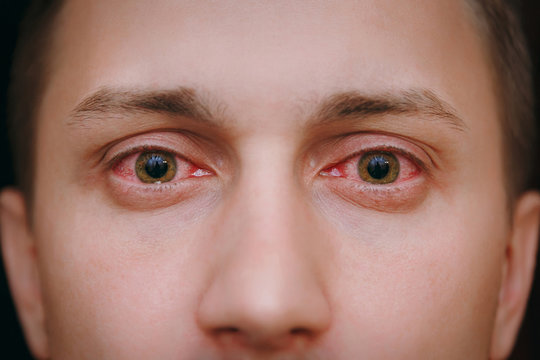

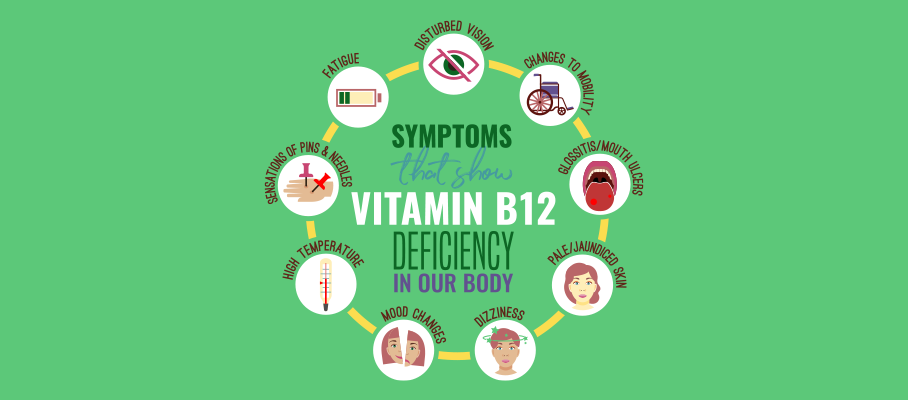



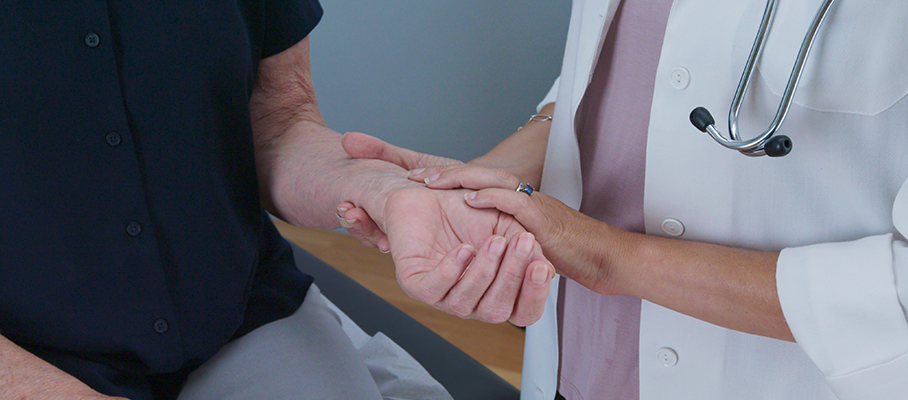





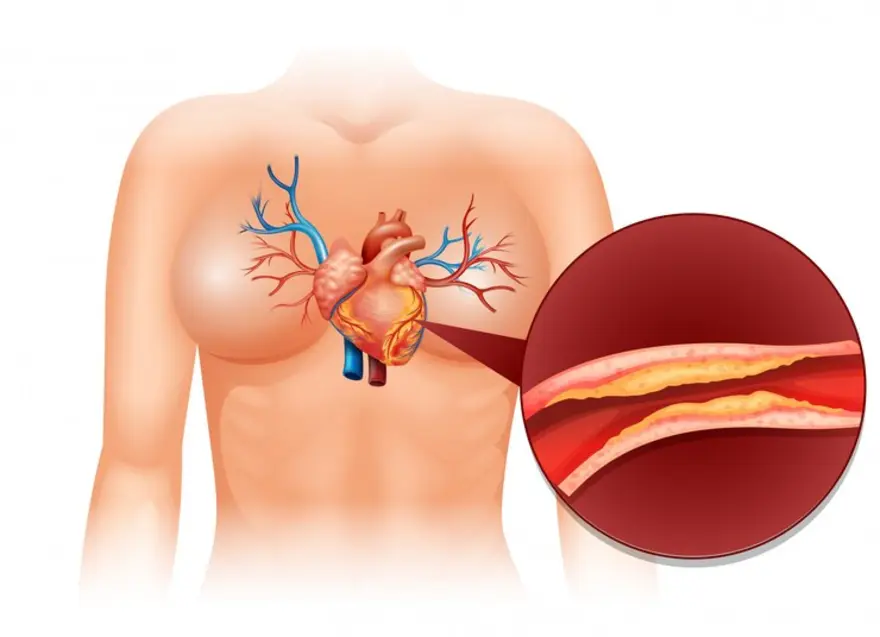
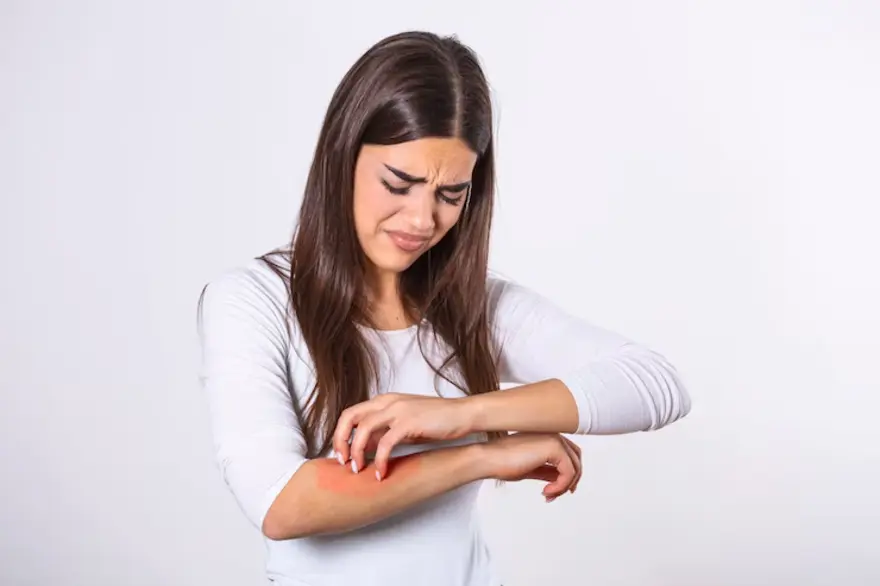



 WhatsApp
WhatsApp